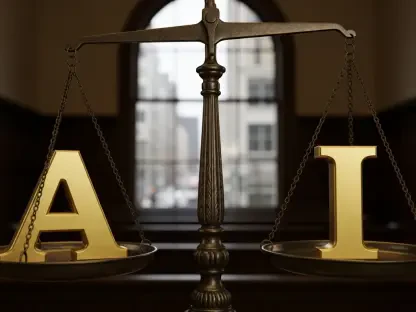In a significant triumph for freedom to read advocates, a legal resolution in Alaska concluded with the Matanuska-Susitna Borough School District agreeing to pay $89,000 to settle a lawsuit regarding the improper removal of books from school libraries. The lawsuit was initially filed on November 17, 2023, by eight local plaintiffs, the American Civil Liberties Union (ACLU) of Alaska, and the Northern Justice Project (NJP), challenging the district’s decision to remove 56 books following parent complaints. This removal included notable titles such as Toni Morrison’s The Bluest Eye, Margaret Atwood’s The Handmaid’s Tale, and Kurt Vonnegut’s Slaughterhouse-Five. The books addressed topics involving people of color, the LGBTQ community, and adolescent sexual health. The case’s outcome represents a broader victory against censorship and reinforces the importance of diverse literary works in public education settings.
In an April 1 hearing, school officials claimed broad authority to review library books but faced strong opposition from the plaintiffs’ attorneys who argued the books were removed without due process, without establishing a review committee. Federal Judge Sharon Gleason ruled on August 6 that the school district’s actions raised concerns over the suppression of ideas and ordered the return of most books to library shelves before the new school year. Despite school officials maintaining they did no wrong and sought to avoid trial costs, the settlement and its terms underscore the illegitimacy of the book bans. Various stakeholders celebrated this decision, asserting it serves as a deterrent to other districts contemplating similar censorship actions. This legal victory in Alaska is part of a broader trend across the U.S., with ongoing cases in other states like Iowa and Florida challenging the legitimacy of book banning laws.
Implications of the Legal Settlement
The contractual resolution not only expunged the majority of the contested books but also sent a cautionary message to other districts about the potential expenses and repercussions tied to constitutional violations. This case exemplifies that student and parent access to diverse ideas in educational settings remains a protected right. Ruth Botstein, legal director for the ACLU of Alaska, emphasized that this case highlights the significant impact and legal consequences of unconstitutional censorship. Savannah Fletcher from the NJP reiterated that the outcome confirmed the right to access a wide range of ideas in schools. Furthermore, this victory reinforces the precedence for the judiciary in preserving freedom of speech and the exchange of ideas within the educational environment.
This specific case’s outcome reflects an overarching trend advocating for broader access to diverse literary works in schools, marking another success for freedom to read proponents amidst a nationwide series of litigation surrounding book censorship. This settlement not only restored books to shelves but also reinforced the broader legal principle against arbitrary removal of literature. Across the country, similar cases are emerging, drawing attention to the growing resistance against restrictive book bans. Such litigation underscores the need for careful consideration and adherence to legal frameworks when deliberating library collections and illustrates that broad censorship faces significant legal challenges.
Broader Context of Book Censorship in Schools
In a significant victory for advocates of the freedom to read, the Matanuska-Susitna Borough School District in Alaska has agreed to a settlement of $89,000 to resolve a lawsuit over the improper removal of books from school libraries. This legal action was initiated on November 17, 2023, by eight local plaintiffs, the ACLU of Alaska, and the Northern Justice Project. They contested the school district’s decision to remove 56 books after complaints from parents. The removed books included well-known works such as Toni Morrison’s The Bluest Eye, Margaret Atwood’s The Handmaid’s Tale, and Kurt Vonnegut’s Slaughterhouse-Five, addressing important topics like people of color, the LGBTQ community, and adolescent sexual health.
At an April 1 hearing, school officials defended their broad authority to review library books but faced strong opposition, with plaintiffs’ attorneys arguing the books were removed without following due process and without forming a review committee. On August 6, Federal Judge Sharon Gleason found that the school district’s actions raised concerns over the suppression of ideas, ordering the books’ return before the new school year. Although school officials maintained they acted properly and sought to avoid trial costs, the settlement underscores the illegitimacy of such bans. This victory is seen as a warning to other districts considering similar censorship, reflecting a broader national trend with ongoing cases in states like Iowa and Florida challenging book banning laws.









